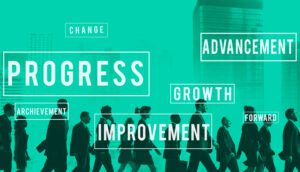
Overcoming the Challenges of Going Back to School as an Adult
If you want to switch your career, then you’d need to go back to school. While it sounds decent, in reality, going back to school as an adult can feel very intimidating, but you are not alone.
It is true that adults rejoining studies face unique challenges, but the good news is that there’s a solution for everything.
In this guide, we’ll explore three common challenges adults face when returning to education, i.e., self-doubt, finances, and existing responsibilities, and how to overcome them.
Three Common Challenges and How to Overcome Them
Fear of Returning to School After a Long Time
Fear and self-doubt are natural when you’ve been out of school for a while. Many adults worry, “Am I too old for this?” or “What if I can’t keep up with younger students?” You might feel anxious about using new technology or writing papers again. This fear of going back to school can be paralyzing, but you can overcome it.
How to overcome this challenge:
Overcoming your fears starts with acknowledging them. Write down what exactly worries you, whether it’s fear of failure, fear of embarrassment, or fear of balancing it all.
Then confront those fears with facts and planning. If you’re afraid you’ve “forgotten how to study,” reach out to the institute’s student support services; they’ll guide you through the process.
Remember, colleges want you to succeed and often provide resources for adult learners, from academic advising to refresher workshops. Don’t hesitate to use them.
Balancing School, Work, and Family Time
Time is one of the biggest reasons people choose to delay plans to go back to school, and they usually dismiss it by saying something like, “I don’t have time to go back to school.”
Juggling a full-time job, family responsibilities, and coursework can indeed be difficult. In fact, about 40% of college students over age 25 are employed while studying (many full-time).
Similarly, many students are also a parents. These added responsibilities leave working adults with very limited time for classes and homework. It’s no wonder that time management feels like a top concern.
How to overcome this challenge:
It comes down to flexibility and time management. One smart solution is to choose an online program or one that offers a hybrid classes that fit your schedule.
Another important thing you need to do is maintain open communication with your workplace and negotiate flexible work hours, if possible.
Financial Barriers
“I can’t afford to go back to school.” It’s time to discuss the elephant in the room. Even if you overcome the above challenges, you still face the biggest issue, i.e., paying for school.
And this is a huge issue in the present times, with even the prices for essentials skyrocketing.
However, don’t assume that returning to school is financially impossible. There are ample resources and strategies to help adult learners pay for college or career training.
How to overcome this challenge:
Although many people go back to school, few have the cash ready in their pocket. Here are some smart ways to overcome financial barriers when returning to school:
- Apply for federal aid (grants and loans): Submit the FAFSA to see what federal Pell Grants (which don’t need repayment) or student loans you qualify for. Even part-time students can often get aid. There are no age restrictions on federal aid – adult students can access the same grants, loans, and work-study programs as traditional students. Contact the CCI Training Center representative to check if you qualify for financial aid.
- Seek employer assistance: Check if your employer offers a tuition reimbursement program or professional development fund. Many companies will pay for part of an employee’s education if it’s related to their job or career growth.
- Earn credit for what you already know: Some colleges grant academic credit for prior learning, such as professional certifications, military training, or work experience exams. This can reduce the number of courses (and tuition) you need for a degree.
- Choose affordable and flexible programs: Compare tuition costs between schools becuase there can be a huge difference in fees. Community colleges, public universities, or accredited online programs might offer lower tuition or in-state rates. Also, always ask for flexible payment options.
- Budget and plan ahead: Treat your education like an investment. Create a lean budget to cut unnecessary expenses while you’re in school. Maybe you can eat out less or pause that pricey cable package, freeing up funds for tuition.
Additional Concerns Adults Students May Have
Uncertainty About Your Career Path or Major
Not sure what to go back to school for? You’re not alone here either. It’s common for adults to feel unsure about which program or career path to pursue, especially if you’re considering a career change.
To overcome this issue, start by identifying your goals and interests. Ask yourself:
- What outcome do I want from going back to school?
- Am I aiming for a specific profession (nurse, software developer, teacher)?
- Can I get a higher salary or promotion in my current field?
Take some time for self-reflection. Make a list of subjects or activities you enjoy, skills you’d like to develop, and values that matter in a career (e.g., helping others, job stability, creativity).
If you’re still unsure, contact one of our admissions representatives; they’ll help you pick the right program.
Overcoming Career Outcome Worries
Another question that commonly worries adult students is “What if I go through all this schooling and still can’t get a good job at the end?” Concern about job prospects after graduation is very real, especially if you’re investing time, money, and effort into going back to school specifically to improve your career.
So how do you overcome this challenge? By choosing the right program and leveraging career services.
To maximize your chances of success, seek out programs that are career-oriented and offer job placement support, rather than a purely academic or theoretical course of study. For example, CCI Training Center emphasizes career placement as part of its mission – it provides placement assistance after graduation and ongoing career counseling for alumni.
How to Prepare for Going Back to College as an Adult
Here is some of the best advice for adults going back to college:
- Do your career homework: Before enrolling, spend time clarifying your career goal and researching programs (as discussed above). Use tools like the Bureau of Labor Statistics’ Occupational Outlook Handbook to analyze salaries and job growth. Also, carefully read the program catalog to ensure your institute teaches the skills you need.
- Meet with an admissions advisor: Nearly all colleges have admissions counselors who can walk you through program options, prerequisites, and the application process. An admissions or enrollment counselor will also review your previous transcripts and advise on credit transfer or requirements, saving you surprises later.
- Sort out finances early: As soon as you decide to go back, fill out the FAFSA and explore the financial aid strategies. Create a tentative budget for how you’ll cover tuition and related costs (books, commuting, or computer if needed). If you plan to keep working, verify if your employer will contribute to tuition. Knowing your financial plan ahead of time will reduce stress when classes start.
- Practice time management: Before classes begin, think about your weekly routine and where you’ll fit in study time. You might start getting up an hour earlier or using part of your lunch break for studying to build the habit. Set up a dedicated study space at home if possible – a quiet corner with your books and computer.
- Refresh key skills: If it’s been a long time since you were in school, take advantage of any refresher resources. Many colleges offer orientation workshops or online modules on how to use the library database, how to cite sources, or how to use the learning management system.
- Build your support network: Talk to your family about how responsibilities might be redistributed (who’s cooking dinner on class nights, for example). Let close friends know you might be less available but would appreciate their encouragement. If you join any online student groups or forums for your program, introduce yourself – connecting with fellow adult students can provide moral support.
- Set realistic expectations: Finally, go in with a realistic mindset. You will not just return to school and start getting A’s on every assignment. You might need to adjust your course load if life gets too busy, and that’s okay.
By following these steps, you’ll be well-prepared when you step back into the classroom.
Final Words
Returning to school as an adult is undoubtedly challenging, but it is absolutely worth it. Every challenge, whether it’s fear, time, money, or uncertainty, can be overcome with the right approach.
If you decide to advance your career with CCI Training Center, our faculty and staff are here to help you at every single step of your learning journey because we want to see you succeed.
Program Offered
- Pharmacy Technician Training
- Online Medical Assistant
- Medical Billing and Coding Specialist Program
- Cloud Computing Technician Training
- Computer Network Technician
- Business and Accounting
- Radiology Technician Training
- Medical Assistant Program
- Computer Support Technician
- Cybersecurity Program
- Virtual Assistant Training

This article is written by
Share this article
Program Offered
- Pharmacy Technician Training
- Online Medical Assistant
- Medical Billing and Coding Specialist Program
- Cloud Computing Technician Training
- Computer Network Technician
- Business and Accounting
- Radiology Technician Training
- Medical Assistant Program
- Computer Support Technician
- Cybersecurity Program
- Virtual Assistant Training

This article is written by
Share this article
Frequently Asked Questions FAQ's
Is it harder to go to college as an adult?
It can be challenging; however, with proper guidance and support, you can overcome any challenges you may encounter when going back to school.
How to plan for college as an adult?
To properly plan for college as a working adult, make sure you:
Clearly communicate new changes with your friends and family.
Is it normal to be nervous about going back to school?
Yes, it’s perfectly normal to be nervous before going back to school, especially if you’re rejoining after a long time.
How to stop worrying about back to school?
By focusing on your goal and accepting that your peers are there to grow. You can also speak with a student service representative to make this return to education easier.
Related Articles






CCI Training Center Proudly Completes
41 Years in Career Training Services











